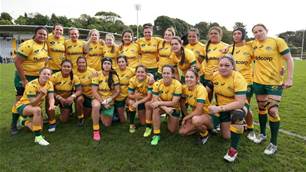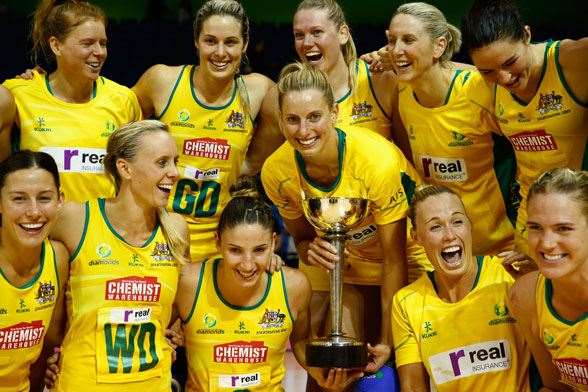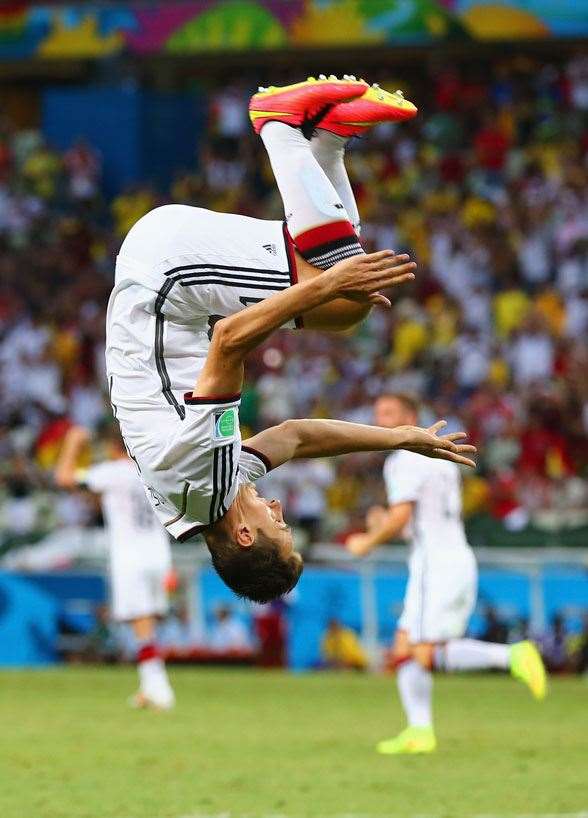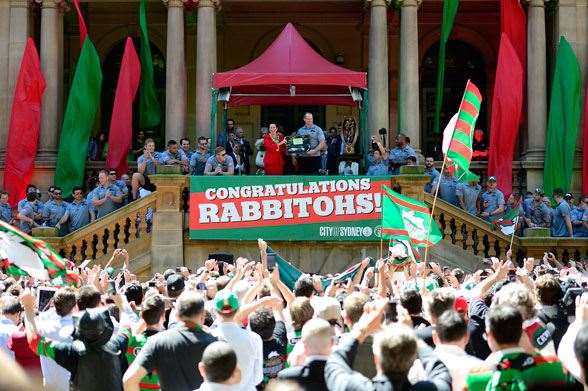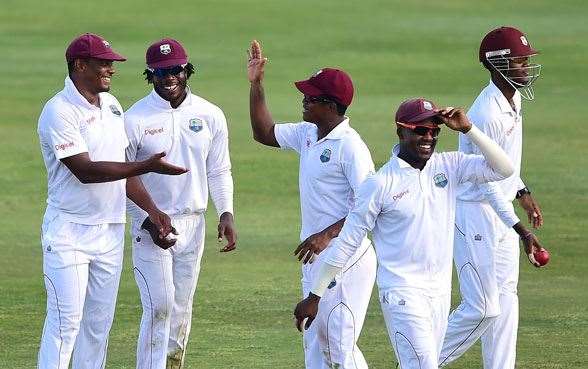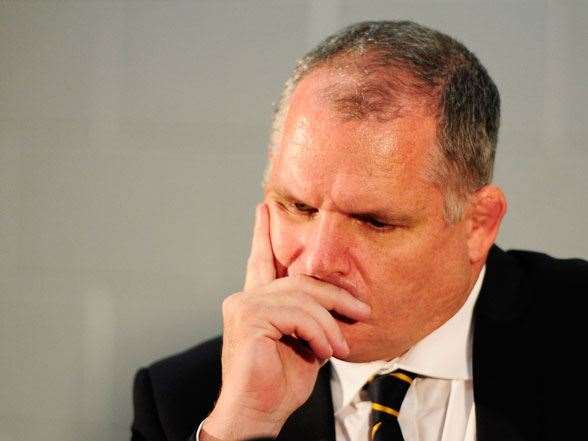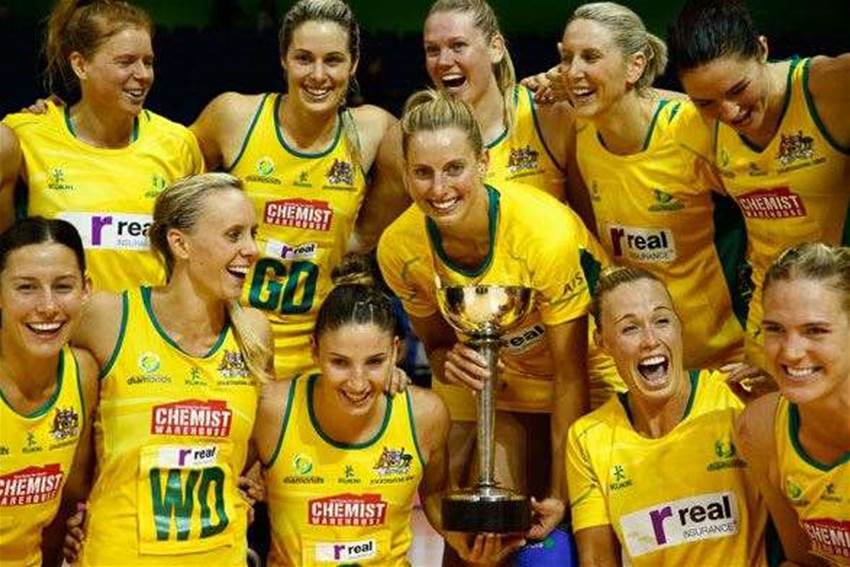Find out who else has made our monthly list of heroes and villains.
LOSER - AUSTRALIAN RUGBY UNION
The annals of sports admin haven’t recorded many episodes worse than what the Australian Rugby Union has served up recently. Last season’s struggles with its entitled Gen-Y bad boys look like child’s play. The real problem at the ARU, though, as we all found out, was with the adults. When the Kurtley Beale-Di Patston texting incident first came to light, it looked like yet another unfortunate moment of player misbehaviour, with an overlay of workplace harassment to fire up op-ed writers for a couple of news cycles. Instead, it became a tunnel to hell that the ARU furiously kept on digging, as the divided playing group, the under-siege front office and Ewen McKenzie’s coaching tenure were sucked into the vortex. McKenzie (pictured), in particular, makes one of the oddest exits of a top-line coach in recent times – forced out not exactly because of performance on the field, but because of bad process management.
There’s a notion in sports admin that organisations ‒ not teams ‒ are what win championships. There’s plenty of proof either side of that proposition, but what is true is that it’s hard for any team to over-perform when the off-field side of things is run so badly. Rugby’s position is widely known to be precarious: the game is frighteningly hard-up financially, the lack of confidence in chief Bill Pulver is glaring, the new National Rugby Championship is flat-lining in terms of public attention, and the national team is pretty much where it was a year ago, looking to a new figure on the sideline.
There’s a fair question to be asked: but for a few points in two Tests against the All Blacks, would Australian rugby’s state of mind be entirely different, or at least better? Winning is a weirdly effective panacea in sports. As bad as everything appears, the Wallabies have stumbled into the hands of Michael Cheika, a man who looks to have the right kind of crash-through approach. Either that, or we’ll be revisiting this type of situation again, only with the names changed.
LOSER - WEST INDIES CRICKET
If the ARU wants to make itself feel better, it can check out West Indies cricket. The once-mighty Windies have long been trending downward, but their latest nadir should have everybody in the sport worried. The abandonment of the team’s tour to India over a pay dispute has all the elements of a perfect storm – the striking players are fed up, the board has lost credibility and the Indians are threatening to sue for losses of $70 million, which would only serve to bankrupt West Indian cricket, which depends on the Subcontinent’s cash to survive.
If there’s an endpoint to the decline of cricket in the Caribbean, it would look like the scenario currently playing out. It’s the nightmare that haunts the established model of the international game – players who would forsake national duty for T20 cheques, but who could hardly be blamed for not showing loyalty to national officials who haven’t given them much reason to. And in a larger sense, this was the entirely foreseeable downside after the reshaping of the ICC – India, Australia and England, now grabbing a greater share of the revenue, having to serve as both parent and loan shark for cricket’s less-well-off tier.
This is hardly the ideal atmosphere coming into the game’s keynote global event. For those of us raised on memories of the coolest cricket teams ever, the continued erosion of West Indian cricketing relevance is sad. Now, imagine a time when it’s only a fading historical memory.
WINNER - JARRYD HAYNE
There are many ways to interpret Jarryd Hayne’s attempt to crack the NFL: what it means for the marquee value of rugby league, a branding ploy, a challenge to the economic structure of the domestic football codes, maybe because footy ain’t that much fun to play anymore. But this is the rare situation in which the sentimental consideration might actually be the truest – Hayne is making this switch because he really wants to see if he can do it.
This is what makes Hayne (on the left) different to other NRL stars who have exited recently to union or the AFL. This wasn’t a money move – while there is considerable cash to be made in the NFL, the risk attached is far greater than what Hayne could have safely banked if he stayed in Australia. All the hints he had dropped in the past year point to an honest fascination with the big stage of the gridiron, and how it stoked that elite-athlete desire within him to test his limits.
Perhaps the most interesting take on Hayne’s project was the realisation of the new consciousness of our local footy stars – their vistas are no longer confined to a seaboard, whether it’s Hayne visiting the Seattle Seahawks or Sonny Bill Williams taking to the field in Chicago. They are acutely aware of their talents in the context of a wider world. Whatever else one might think, Jarryd Hayne is testing a proposition that many a sportswriter’s mind has dreamed up – just how would our guys do in that game anyway? Which is pretty damn cool.
LOSER - ONFIELD CELEBRATIONS
This is one of those things that seemed bound to happen: on-field celebrations have become so out of control in sports, and over the past couple of months they’ve been inflicting real damage. Since the FIFA World Cup (Klose, pictured), a Cameroonian football player named Joel celebrated a goal in the Brazilian league by hopping the ad boards, and then fell down a hole covered by a tarpaulin. In the NFL, Chicago’s Lamarr Houston was performing a dance after sacking the quarterback, and tore a knee ligament doing it (what’s more, his team was 25 points down). But the ultimate indignity occurred in India’s Mizoram Premier League football, where Peter Biaksangzuala DIED after injuring his spine in a celebratory series of somersaults. It’s fine for athletes to show positive emotion, but a piece of old coaching wisdom bears repeating here: act like you’ve been there before, fellas.
WINNER - SOUTH SYDNEY RABBITOHS
Of all the losses that a fan has to stomach, truly the worst of all – worse than all the shock upsets or epic thrashings – is seeing your team disappear. It is why the victory of the South Sydney Rabbitohs in the 2014 NRL season must qualify as one of the feel-good stories in sport this year. The Bunnies finally got over the September hump that had troubled them in recent times, but those frustrations paled in comparison to the weight of history that had stacked up against the club since its last premiership in 1971, including being booted from the comp in 2000 and 2001.
It was a win for old-time passion, as well as for a highly traditional notion of toughness. It was the kind of dream day that a Souths fan could only cling to in the early period of the 2000s. The days after will present their challenges, and we’re not only talking about the number of Burgess brothers that they can hold on to. There is an issue of identity – you’re not exactly the lovable, battler club anymore when you’re owned by a Hollywood star and one of the richest men in the country. The potential for a Boston Red Sox-style bandwagon is extremely high. But it would be churlish to fixate on such things at present. After 43 years, and 41 seasons, the folk in Redfern and beyond deserve everything from their moment.
WINNER - AUSTRALIAN DIAMONDS
Proper recognition needs to be paid to netball’s Australian Diamonds, who earned a most fitting sobriquet ‒ “the flawless” ‒ with their play record year. We have our various invincibles and unbeatables, and Lisa Alexander’s team lived up to the standard by going undefeated over 13 matches in 2014, the team’s first undefeated campaign since 2002. It’s a grand achievement, but about the only thing the Diamonds earn in the deal are big-time expectations for the World Cup in Sydney next year.
Related Articles
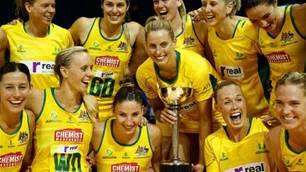
The ARU and Windies really feeling the heat

Chuffin' hell, here come more Poms!
